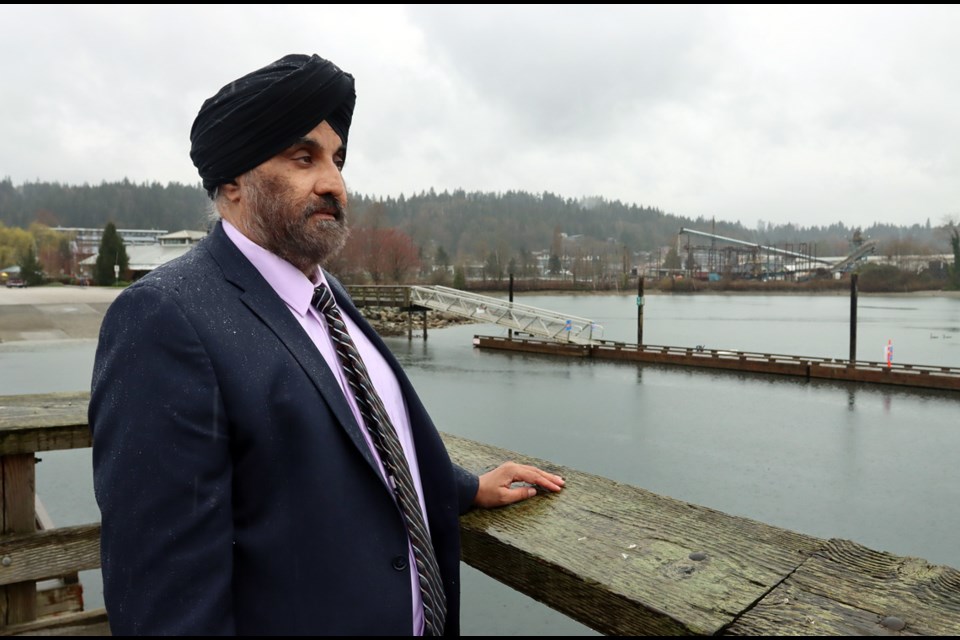A Surrey man with a story to tell is hoping the city of Port Moody will want to share it with its residents.
Raj Singh Toor is scheduled to make his pitch for the city’s participation at Tuesday’s council meeting.
He says it’s not a happy story — shameful, in fact — but it’s an important one that holds valuable lessons even though it took place more than a century ago.
Toor’s grandfather, Puran Singh Janetpura, was one of 376 Sikh, Muslim and Hindu passengers aboard the Japanese ship Komagata Maru when it sailed into Vancouver on May 23, 1914.
All of them were seeking a better life in Canada than the one they’d left behind in India. As fellow British subjects sharing a common Queen, they thought they’d be welcomed with open arms.
Instead, Canadian authorities refused to allow the vessel to dock. For two months it sat anchored in the harbour, with food and water diminishing because supply runs were also forbidden.
Toor said the passengers drank rain water while the ship’s Japanese crew was allowed to head to shore to get their own groceries. Even efforts by local South Asian and First Nations communities to transport provisions were rebuffed by the Canadian government.
The passengers were starving. Several got sick. “They had a very painful, hard time,” Toor said.
When the Komagata Maru was finally ordered to return to India under the escort of a Canadian naval vessel, Toor said his grandfather told him years later some passengers were so distraught and fearful of what might await them upon their arrival, they hoped their escort would turn its guns their way.
The fears proved warranted: British troops killed 20 of the passengers, several more were wounded, and many, like Toor’s grandfather, were sent to jail.
Toor said his grandfather’s experience aboard the ship — and in prison for five years — radicalized him. He got involved in India’s fight for independence from Britain’s colonial rule, a battle that was ultimately successful in 1947.
Toor said while the story of the Komagata Maru proved pivotal to India’s history, it remains a stain on Canada’s reputation as a tolerant, welcoming land.
It’s also a story with tendrils curling deep into communities across the Lower Mainland, where ancestors and descendants of the ship’s passengers toiled in local lumber mills like Flavelle Cedar in Port Moody and Fraser Mills in Coquitlam.
For more than 15 years, the Descendants of Komagata Maru Society — of which Toor is the vice-president — has been working to gain apologies for the wrongs inflicted upon the ship’s passengers.
They’re not interested in financial reparations, Toor said. Rather, the acknowledgement can serve as a teaching tool for future generations. “There’s still systemic racism. We can still see it,” he said. “We have to educate the communities that this can’t happen again.”
In 2008, the BC government apologized. Eight years later, a mea culpa came from the Canadian government, and last June another was issued by the city of Vancouver for its role in the affair.
The society’s efforts have also borne tangible results: a street in Surrey was renamed Komagata Maru Way, a storyboard erected in a park it adjoins; another storyboard has been placed in North Delta; and in March, the city of New Westminster agreed to name a dock in Queensborough after the rejected vessel.
Toor said he’d like to secure a similar commitment in Port Moody, where some members of the local Sikh community had contributed food, water and medicine to the stranded passengers as well as donated money in an effort to lease the ship so it couldn’t be sent away.
“There’s a direct connection,” he said. “We can’t undo the past, but we can move forward.”



